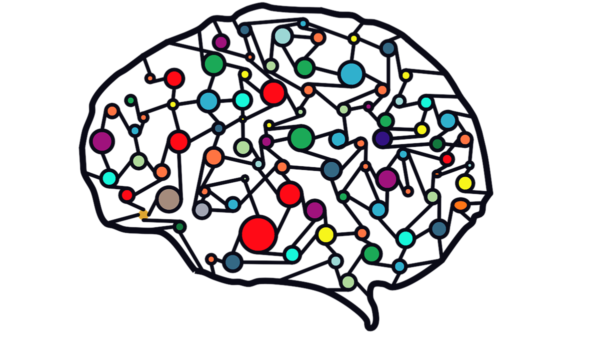Availability Bias: Saying the First Thing that Comes to Your Mind


Written and verified by the psychologist Valeria Sabater
The availability bias explains, to a large extent, why advertising works. When we need to buy a product, the brands we’ve seen on TV or social networks usually come to mind. In fact, some brands are so popular that they’ve become generic.
People aren’t always aware of how, sometimes, they act and respond by using very simple heuristics and, above all, in response to what first comes to mind.
For example, if someone asks us what the most poisonous animal in the world is, we’ll probably think of snakes or spiders. We believe all the information found in our brains, information that we hear as we go through life. However, we don’t even question that information. In fact, the sea wasp jellyfish is the most lethal creature known to us.
There’s something else that’s important to consider. This availability bias is to blame for much of the misinformation we unconsciously carry with us and that blur reality. The fear of flying in planes is more common than the fear of driving. However, it’s much more likely to have a tragic traffic accident than a tragic plane accident.
People buy lottery tickets every day, thinking that, sooner or later, they’ll win. However, the probability of winning can be as little as 1 in 15 million. All of us, in some way, favor the information that’s more accessible in our memories and consider it to be more bona fide.

Availability bias: what is it?
Imagine that two people are talking about the best place to go on vacation. Suddenly, in the conversation, the name of a paradisiacal, almost perfect place, comes up.
However, it doesn’t take long before one of them remembers reading something in the news about that place. They recall that the number of thefts is quite high in the place in question, and mention it to their partner, suggesting that it may be better to forget that idea.
With this example, we can see how the mind works by using very rudimentary mental shortcuts to make decisions. It does so by starting from the information that’s most readily available, wherever that information should come from.
In this case, the person concluded that it’s best to discard that idea due to an article they read. They no longer compare information or analyze other factors. The matter is settled.
The whole field of human decision-making and the way we decide for and against different options is an area that has always interested psychology. However, it wasn’t until 1970 that Amos Tversky and Daniel Kahneman labeled what they themselves defined as availability bias or heuristics.
They described how, when we evaluate a situation or decision, we always make use of whatever is most accessible in our minds. To understand it better, let’s have a closer look.
We give more prominence to the most recent information and that of greater emotional impact
The human mind will always significantly retain the latest information. Likewise, we also tend to remember everything that has a high emotional association. In the world of marketing and advertising, they know this well. Thus, they always try to take advantage of this fact, trying to awaken emotions in potential customers.
For example, if you want to buy some toilet paper, then a certain brand could quite easily pop into your mind, one that uses an adorable Golden Retriever as its image. Advertising makes us go to the supermarket feeling that certain products are familiar to us and we choose them almost without knowing why.
The availability bias makes us decide things by making use of what’s always “at hand” in our recent and emotional memory.
The power of experience in availability bias
There’s a third factor about availability bias that we should consider. Living out certain experiences ourselves will mean we remember them better and that they’re more readily available in our minds.
For example, if someone asks us what’s the worst thing a person can experience, we could say “going through a depression“, because that’s what we just lived through.
For others, the worst experience will be losing a parent at a young age, because that’s what happened to them. We don’t always consider other options because we simply haven’t experienced them, and our brains don’t take them into account.

The goal is to save time and mental energy
Scott Plous, a social psychologist and professor of psychology at the Department of Psychology at Wesleyan University, is one of the people who has studied availability bias the most. In one of his books, he explains the following:
“The more accessible an event is, the more frequent and probable it will seem; the more vivid the information, the more convincing and easy to remember it will be, and the more evident something is, the more causal it will seem.”
If the mind works using these schemas, it’s basically due to the following fact. Throughout our evolution, the brain has always sought to enable us to actively emit responses and behavior. The goal is to save time and energy; we have to optimize our mental work and act quickly in order to survive and adapt to the environment.
What does this mean? It implies that the availability bias will always be a shortcut that helps you to evaluate options efficiently, no matter if that information is valid. You treat certain facts and information as if they were the only valid ones in the world, and, in that way, you simplify situations and you can respond rapidly to them.
Sometimes, this is useful. However, it’s always a good idea to make some effort to look at other information, keeping in mind that your brain is full of many different biases. Keeping this in mind and relativizing some of your thoughts by giving yourself time to think calmly can be extremely beneficial in your life. You should consider this option.
All cited sources were thoroughly reviewed by our team to ensure their quality, reliability, currency, and validity. The bibliography of this article was considered reliable and of academic or scientific accuracy.
- Read, J. D. (1995) The availability heuristic in person identification: The sometimes misleading consequences of enhanced contextual information. Applied Cognitive Psychology; 9(2): 91–121.
This text is provided for informational purposes only and does not replace consultation with a professional. If in doubt, consult your specialist.








